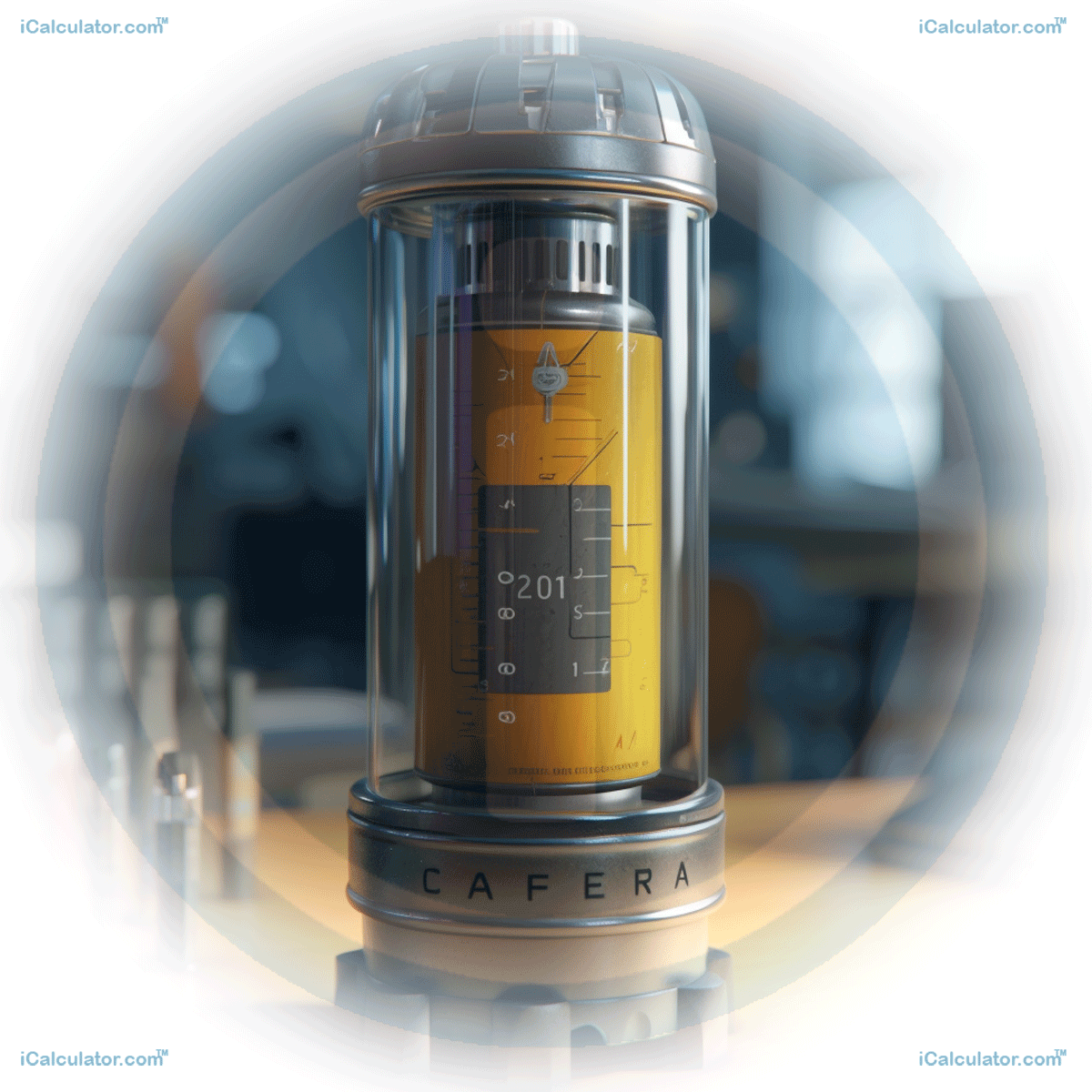Menu
Capacitor Quality Factor Calculator
Please provide a rating, it takes seconds and helps us to keep this resource free for all to use

In electronics and electrical engineering, the quality factor (Q) of a capacitor is a dimensionless parameter that indicates how "good" a capacitor is. It is a measure of the losses within the capacitor, defined as the ratio of the reactive power stored by the capacitor to the real power dissipated by the losses within the capacitor. Understanding the concept of Capacitor Quality Factor is essential for designing and analyzing circuits, especially in resonant circuits where high-Q capacitors are often desired. This content is particularly relevant to the study of electromagnetism and electrical circuits, subfields of Physics.
| ohms | |
| pF | |
| Mhz | |
| Quality Loss Factor = |
Example Formula
The quality factor (Q) of a capacitor is calculated using the following formula:
- R: Resistance in ohms (Ω).
- C: Capacitance in farads (F).
- f: Frequency in hertz (Hz).
Impact on Society
The concept of the Capacitor Quality Factor and the associated formula have shaped the field of electronics and telecommunications in numerous ways. High-Q capacitors are desired in many applications, including filters, oscillators, and resonant circuits, where they minimize power loss and allow circuits to perform more efficiently. This concept has, therefore, contributed significantly to the development and improvement of a variety of technological devices and systems, such as radio and television broadcasting, mobile communications, and various signal processing systems.
Real Life Application in Industry
The Capacitor Quality Factor is used extensively in the electronics and telecommunications industry. In the design of resonant circuits for radio and TV broadcasting, mobile communications, or any system that involves signal transmission or filtering, capacitors with an appropriate quality factor are selected to ensure minimum power loss and optimum circuit performance.
Key Individuals in the Discipline
Although no single individual can be credited with the development of the Capacitor Quality Factor concept, the collective contributions of scientists and engineers in the field of electrical engineering and physics have been significant. People like Michael Faraday, who contributed to the understanding of electromagnetism, and Oliver Heaviside, who formalized the study of electrical circuits, have played a crucial role in the development of the concepts that underpin this topic.
Interesting Facts
- The quality factor of a capacitor, as well as that of inductors, is crucial in the design of radio tuning circuits.
- A capacitor with a high Q factor has less energy loss. Such capacitors are essential in many electronic applications, like filters and oscillators.
- The Q factor of a capacitor can be improved by reducing the equivalent series resistance (ESR), increasing the dielectric quality, or by choosing an appropriate operating frequency.
Conclusion
The Capacitor Quality Factor plays a significant role in the field of electronics and telecommunications. This parameter helps engineers select suitable capacitors for various applications, thus driving the design and optimization of numerous electronic devices and systems. Understanding this concept and being able to calculate it is, therefore, critical in these fields.
Engineering Calculators
You may also find the following Engineering calculators useful.
- Concrete Yardage Calculator
- Ne555 Timer Astable Circuit Calculator
- Speedometer Calibration Calculator
- Cantilever Beam Uniform Load Calculator
- Spring Mass Calculator
- Tv Screen Size Calulator
- Bitumen Density Calculator
- Safe Speed For Horizontal Curve Calculator
- Single Phase Transformer Calculator
- Traveling Wave Tube Gain Calulator
- Total Luminous Flux Calculator
- Youngs Modulus Spring Resonant Frequency Calulator
- Toroid Inductance Per Turn Calculator
- Gearbox Ratio Calculator
- 8051 Pic Microcontroller Time Delay Calculator
- Speaker Sound Q Theoretical Loudspeaker And Directivity Index Calculator
- Astable 555 Square Wave Calculator
- Impedance And Resonant Capacitor For Coils Calculator
- Transformer Primary Conductor Size Calulator
- Spring Resonant Frequency Calculator